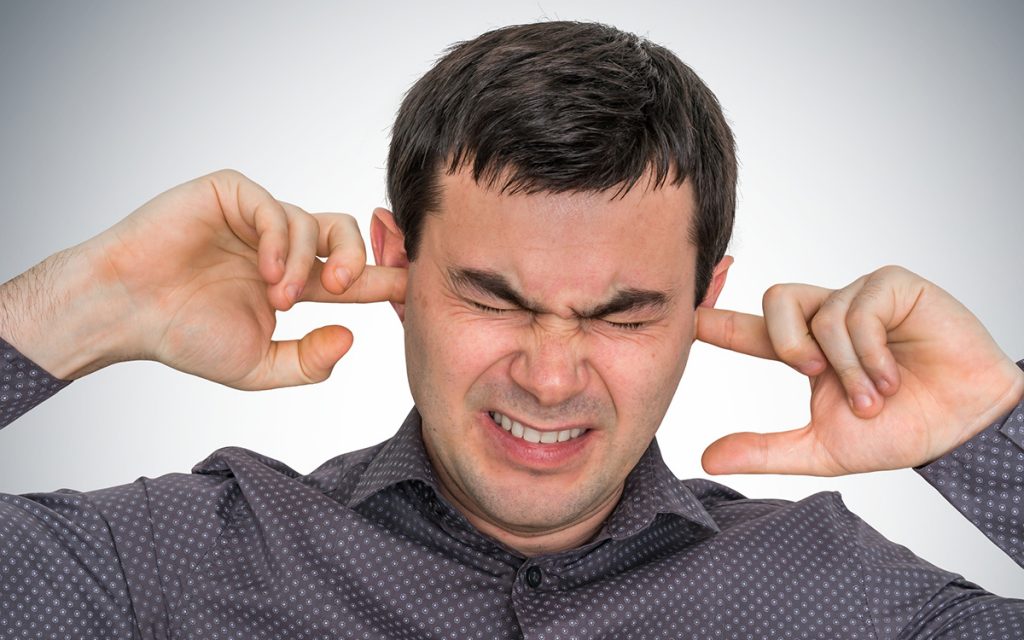You walk into the kitchen and you look for a snack. You want something salty… maybe some crackers? Some crisps? Or, maybe you should just eat a banana. After all, bananas are good for you.
When it comes to the human body, everything is connected. (There’s a song about that, isn’t there? Something about leg bones connected to shin bones?) So maybe it’s not a huge surprise that what you eat can affect your ears. New research is adding weight to this notion, suggesting that what you eat could have a direct influence on the development of tinnitus.
Your diet and tinnitus
Research published in Ear and Hearing, the official journal of the American Auditory Society, sampled a wide variety of people and took a close look at their diets. The data suggests that what you eat may increase or diminish your susceptibility to certain inner ear conditions, tinnitus among them. Indeed, according to the research, a lack of vitamin B12, in particular, could increase your potential for developing tinnitus.
And vitamin B12 wasn’t the only nutrient whose lack was associated with tinnitus symptoms. Eating too much calcium, iron, or fat could increase your chances of developing tinnitus–at least, according to this research.
That’s not all. The researchers also noted that dietary patterns could also cause tinnitus symptoms. In particular, diets high in protein seemed to reduce the likelihood of developing tinnitus. Not surprisingly, low-fat diets that were high in fruits, vegetables, and meats also seemed pretty good for your ears.
Does this mean you should change your diet?
Diet alone isn’t likely to dramatically change your hearing, and in fact, you’d probably have to have a pretty significant deficiency for this to be the cause. Other issues, such as exposure to loud noise, are far more likely to affect your hearing. That said, you should try to maintain a healthy diet for your overall health.
There are a couple of meaningful and practical insights that we can take from this research:
- Nutrients are important: Your diet is going to have an impact on your hearing health. It sure seems like an overall healthy diet will be good for your ears. But more than that, we can easily see how malnutrition can lead to issues such as tinnitus. This can be especially important to note when people aren’t getting the nutrients, vitamins, and minerals that they need.
- Protecting your ears takes many approaches: According to this study, eating a good diet can help lower your susceptibility to tinnitus and other inner ear conditions. But that doesn’t mean the overall risk has disappeared. It just means that your ears are a little more robust. So if you want to lower the risk of tinnitus even further, you’ll have to take a comprehensive approach to protect your ears. This might mean wearing earmuffs or earplugs to ensure noise levels remain safe.
- Quantities vary: Sure, you need a certain amount of vitamin B12 (for example) to keep your ears healthy. Going below that could increase your susceptibility to tinnitus. But getting more vitamin B12 isn’t necessarily going to make your ears healthier. Getting too little or too much of these elements could be detrimental to your hearing, so always talk with your doctor about any supplements you take.
- Always get your hearing checked by a professional: If you’re suffering from hearing loss or tinnitus, get your hearing tested. A specialist will be able to help you determine (and properly treat) any hearing loss.
Research is one thing, real life is another
And, finally, it’s important to note that, while this research is exciting and interesting, it’s not the final word on the matter. More research will be conducted on this topic to confirm these findings–or to refine them or challenge them. We don’t know, for example, how much of this relationship is causal or correlational.
So we’re a long way from saying a vitamin B12 shot will prevent tinnitus. Keeping that ringing in your ears from surfacing in the first place may mean taking a multi-faceted approach. Diet can be one of those prongs, sure (eat that banana). But it’s important that we don’t forget about tried and tested methods–and that you focus on protecting your ear health as much as you can.



